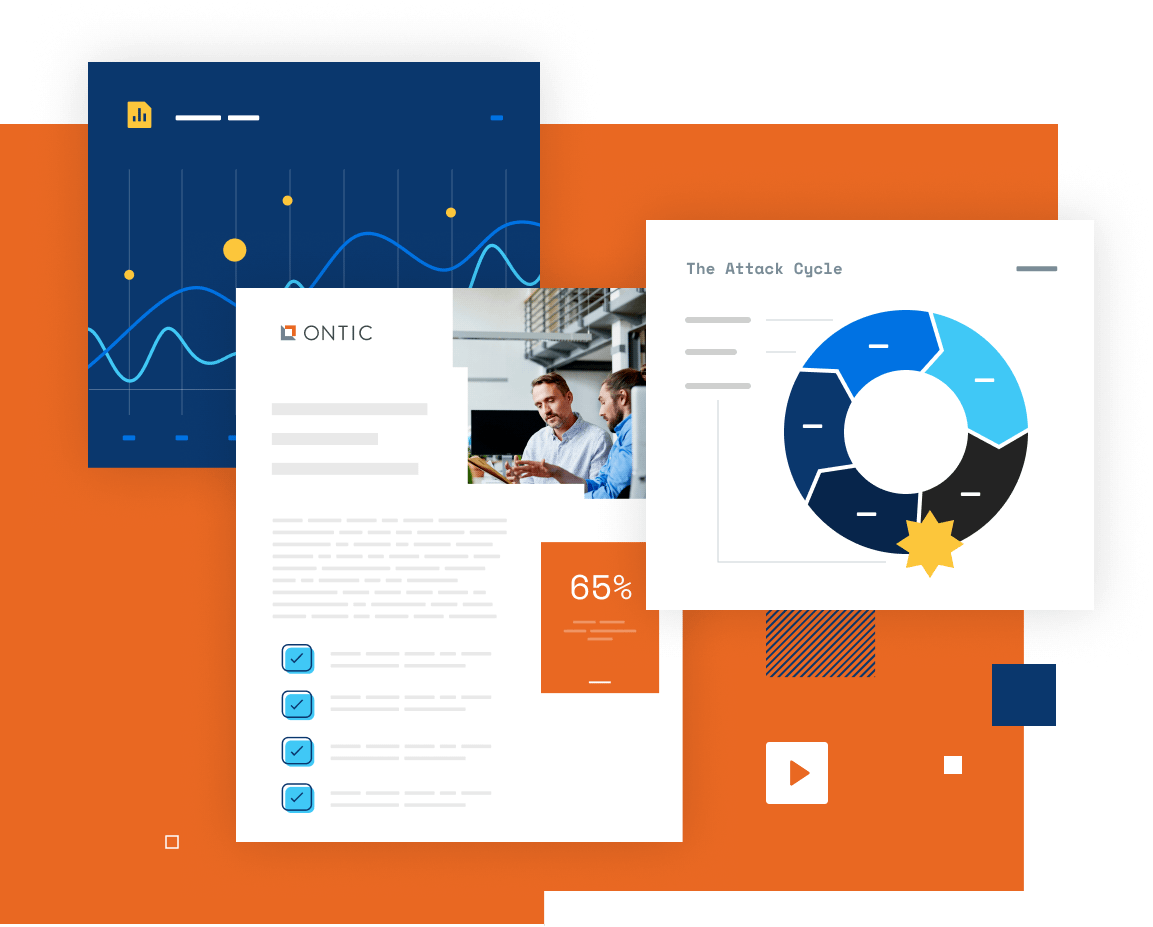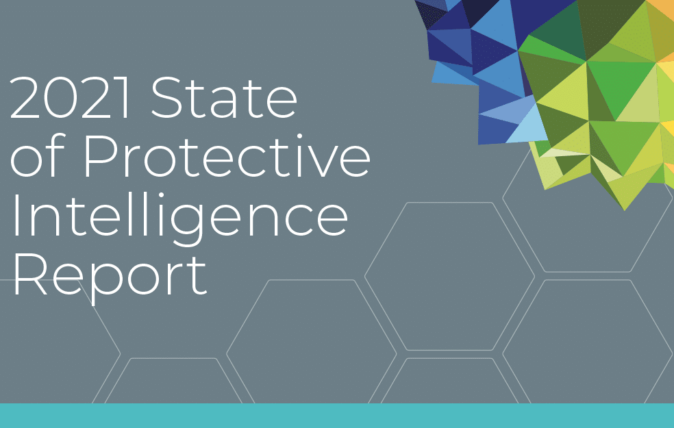How to Recruit and Select a Protective Intelligence Analyst

There are many considerations to keep in mind when looking to hire a protective intelligence analyst to support your corporate security operations. In our experience, the security industry (excluding infosec) generally offers a hiring manager limited standards by which to judge a candidate’s competence. This is doubly true for managers seeking to hire a protective intelligence analyst. There are no analyst certifications — and it’s not clear that any single certification or university program alone would be sufficient proof of one’s competence anyway.
This leaves hiring managers facing a massive challenge in defining what makes a candidate qualified to be a protective intelligence analyst, and finding quality analyst candidates is no easy task. It’s these topics that we’ll explore in detail below and offer solutions that our team of corporate security leaders have come to rely on over the years.
What Characteristics Should You Look For in a Protective Intelligence Analyst Candidate?
There are two ways to answer this question. There’s the book answer, and then there’s the pragmatic answer.
Let’s start with the book answer by considering a work that has already touched on this. In “Intelligence Research and Analysis” by Jerome Clauser, he makes the following observation:
“Ask any authority to identify those human traits that are absolutely essential for anyone proposing to carry out research, and four traits are mentioned invariably: reasoning ability, accuracy, intellectual honesty, and open-mindedness.”
He then goes on to mention the following secondary characteristics:
01
Skepticism
02
Detachment
03
Patience, Diligence, and Perseverance
04
Imagination
That’s the textbook answer. And it would be no easy task to identify these characteristics during a phased selection process.
Here’s the pragmatic answer that is far from perfect but easier to apply in your work.
What I’m most concerned with when it comes to evaluating an analyst candidate is that they work hard, write well, have a positive & curious attitude, and have an interest in working with “things” (as opposed to people). That’s it. I can work with anyone who fits these four criteria, and anyone who fits these criteria can be trained to reach Clauser’s ideal.
A quick note on what characteristic to avoid at all costs: arrogance. Protective intelligence work is not “sexy”. If you hire an analyst who is unwilling to get their hands dirty with work that could be described as mundane, then they won’t be a good fit. Lots of security work is dry, and it’s not what you see in the movies. So, we need support from people that aren’t “above” doing the work. We need team players in the trenches with us, not primadonnas.
What are the core competencies of a protective intelligence analyst?
I could write a book about this topic alone, but for brevity’s sake, this section will be as high level as possible to give you general guidance rather than a prescription.
01
Communication is the most important competency for an analyst. In this context, communication means many things: written, verbal, presentation ability, and the ability to package information in a form that is most appropriate for a give consumer.
02
Research ability is critical. Analysts need to be highly competent at finding information. This means knowing what sources to go to and how to drill down to the information they need.
03
Moderate technology savviness (at a minimum) is growing in importance. Analysts need to know how to make technology work for them. The availability of information is enough to overwhelm anyone, so analysts need to know how to use automated tools that collect the information that is most relevant to their mission.
04
Empathy: understanding “the man/woman on the ground.” The analyst must be able to understand the perspective of “the man/woman on the ground.” This is not a new idea. When you have analysts in the GSOC who have worked a security detail, tried conducting surveillance (even in training), have responded to a disaster, etc. — this is what separates good analysts from great analysts because they intuitively know what information the person on the ground needs to accomplish the mission.
Where do you find intelligence analyst candidates?
First, you should consider the possibility that you may have a future protective intelligence analyst sitting right under your nose. It’s quite common for those working in “field” security roles to transition into analyst roles. Consider this: they already have all of the knowledge of a field operator, and this can be used to inform all of their future work as an analyst. This is a great option if you’re willing to personally train or pay for additional training for this type of person interested in transitioning. I recommend strongly considering this, especially if you already know this person to be reliable, hardworking, and a decent writer from your previous experience with them.
Second, you can find them in universities and related internship programs. A great number of universities in the US use online platforms to connect their students with internship/job opportunities. I highly encourage you to reach out to your local universities to learn more about these types of opportunities. Administrators will be more than willing to help you and direct you through their process. And a more effective option might be networking with individual professors who teach courses containing students who fit the analyst profile.
Generally, I think those that have an interest in international relations / political science, criminal justice, or psychology tend to transfer their interests well to protective intelligence. Of course, there is no college program that prepares one for protective intelligence work. Instead, think about the rigors of the programs and how those transfer over to analyst-type work. In the above-mentioned disciplines, especially international relations, there is lots of reading and writing about “dry” material, and the student has to learn about diverse events, systems, and interactions among countries — all of which relate to the work of an analyst.
Lastly, an additional source to consider for finding analyst candidates should be internship programs with law enforcement agencies (e.g. local PD analysts) or researchers with think tanks.
How Do You Select the Right Candidate?
I’d like to think about candidate selection in three phases: information gathering, testing, and interviewing.
In the information-gathering phase, you are simply vetting the information provided by the candidate. This is likely an application of sorts, a resume, possibly a letter of recommendation, and a writing sample. And what might you be looking for during this information-gathering phase? I would be interested in their academic background/performance, work history (does anything here indicate focus, stability, grit, etc.?), projects they’re proud of, and their ability to put together a resume. For example, if they present you an intelligence product in a similar way to their resume, would you read it?
When it comes to testing candidates to hopefully guarantee a minimal level of competence, there are a number of routes. A common practice is for hiring managers to give a candidate a test that demonstrates their ability to do research around an issue and present it in the form of a written product. This could be as simple as relevant news media relating to a CEO’s hometown or an in-depth project to create a trip briefing or investigate a fictitious person/company. A deliverable based on this type of test should give a hiring manager insight into how the candidate thinks and how competent they are at researching and presenting information.
As a side note, I haven’t seen much of this yet, but I can see investigative teams and security teams in the future using other tests to identify the best candidates. For example, if you know that your most successful analysts have a specific set of traits or characteristics, why would you not screen for people who fit this success profile? There’s plenty of evidence to support the consideration of these types of tests in the future.
*Here’s a simple example of its application from the WSJ: Today’s Personality Tests Raise the Bar for Job Seekers.
Finally, there’s the interview phase. I’m not going to tell you how to run an interview, but I will share what I’ve found to be helpful. Interviews are a great chance to learn about the candidate’s thought process for when they conducted your initial test (What did they struggle with? How did they adapt?). Additionally, the questions that I’ve found to be most revealing are those about professional development (what books are they reading? What investigative or analytical books/courses have they found useful? Have they read any books from ATAP’s reading list or from the author Michael Bazzell?). These questions, among others that demonstrate the candidate’s thought process, approach to learning, and more, will be very informative for you.








